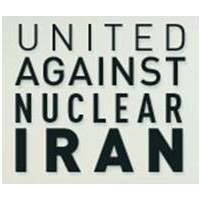Mystery Surrounds U.S. Justice Department Move to Wrap Anti-Iran Group in Shroud of Secrecy

The U.S. Department of Justice has drawn attention to itself for helping an organization opposed to Iran maintain secrecy of its records, which are caught up in a defamation lawsuit filed against the group.
United Against Nuclear Iran (UANI) was founded six years ago and is operated by and gets advice from a who’s who list of American and foreign politicos, including former U.S. Senator Joseph Lieberman; Frances Townsend, the former homeland security adviser to President George W. Bush; Dennis Ross, a former Middle East adviser to both Republican and Democratic presidents; plus former intelligence chiefs from Israel, Germany and Britain.
Victor Restis, a Greek shipping magnate accused by UANI of violating sanctions by doing business with Iran, filed a defamation suit against the group. Restis’ lawyers have sought to compel UANI to release information about its donors and other details.
But the Justice Department stepped in and asked a federal judge to block the request, claiming the records contain sensitive information that the government considers important. Federal attorneys insisted “that certain information” would jeopardize law enforcement investigations, expose investigative techniques or identify confidential sources if released, according to The New York Times.
U.S. District Judge Edgardo Ramos in New York City granted the government’s request, while also describing the U.S. government’s involvement as “very curious.” The Justice Department has until July 31 to claim law enforcement privilege and keep the information from being disclosed permanently. In the meantime, each side has hurled charges and countercharges at the other.
“I am particularly concerned,” Ramos said in April, “that the defendants are able to utilize certain information in its public statements, and then not have to answer to their actions on the basis of a privilege.”
The claim of privilege puts the Justice Department in a conundrum. Federal intelligence agencies are not supposed to work with outside agencies to influence U.S. public opinion. But if UANI hasn’t been working with the government, what information could it have that would be so sensitive? We might find out on Thursday.
-Noel Brinkerhoff, Steve Straehley
To Learn More:
Justice Dept. Moves to Shield Anti-Iran Group’s Files (by Matt Apuzzo, New York Times)
‘New York Times’ Profile of Group Bent on Sanctioning Iran Fails to Mention Israel Connections (by Alex Kane, Mondoweiss)
- Top Stories
- Unusual News
- Where is the Money Going?
- Controversies
- U.S. and the World
- Appointments and Resignations
- Latest News
- Musk and Trump Fire Members of Congress
- Trump Calls for Violent Street Demonstrations Against Himself
- Trump Changes Name of Republican Party
- The 2024 Election By the Numbers
- Bashar al-Assad—The Fall of a Rabid AntiSemite






Comments